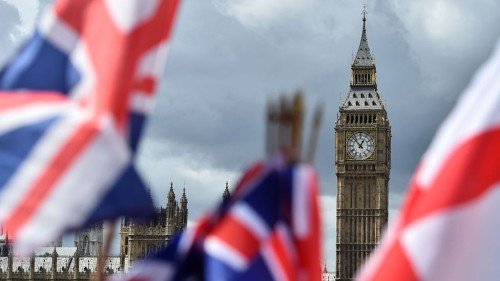
Introduction:
England is one of the largest and most influential countries in Europe, with a rich history and a diverse population. However, in recent years, it has faced a number of significant political challenges that have led to uncertainty and concern among its citizens. In this blog post, we will explore some of the key political problems facing England today.
Brexit:
Brexit is perhaps the most significant political challenge facing England in recent years. In 2016, the UK held a referendum on whether to leave the European Union (EU), and the majority of voters chose to leave. However, the process of negotiating and implementing Brexit has been difficult and contentious, and it has created significant economic and political uncertainty.
Many people are concerned about the impact of Brexit on the UK economy, and on the rights of EU citizens living in the UK. In addition, there are concerns about the potential impact of Brexit on the peace process in Northern Ireland.
Brexit refers to the process of the United Kingdom (UK) leaving the European Union (EU). The term "Brexit" is a combination of the words "British" and "exit." The decision to leave the EU was made through a referendum in 2016, in which 51.9% of the UK electorate voted to leave the EU, while 48.1% voted to remain.
Since the referendum, the UK and the EU have been negotiating the terms of their separation, including issues related to trade, immigration, and the status of EU citizens living in the UK. The negotiations have been complex and contentious, and have led to significant political uncertainty and economic disruption.
The UK officially left the EU on January 31, 2020, but a transition period was put in place until December 31, 2020, during which time the UK continued to follow EU rules and regulations. However, as the transition period ended, the UK and the EU reached a last-minute agreement on a trade deal, which came into effect on January 1, 2021.
Brexit has had significant political, economic, and social consequences for the UK and the EU. Supporters of Brexit argue that leaving the EU will give the UK more control over its laws and policies, and will allow it to negotiate its own trade deals. Critics of Brexit argue that it will lead to economic uncertainty, damage the UK's international relationships, and potentially undermine peace in Northern Ireland.
Brexit continues to be a controversial and divisive issue in the UK, and its impact will be felt for years to come.
Political Polarization:
Another significant political problem facing England is political polarization. Like many other countries, England has seen a growing divide between the political left and right, with many people feeling that their views are not represented by mainstream political parties.
This polarization has been fueled by a number of factors, including economic inequality, social media, and a lack of trust in mainstream media. As a result, many people feel disillusioned with the political process, and there is a growing sense of disengagement from mainstream politics.
Brexit refers to the process of the United Kingdom (UK) leaving the European Union (EU). The term "Brexit" is a combination of the words "British" and "exit." The decision to leave the EU was made through a referendum in 2016, in which 51.9% of the UK electorate voted to leave the EU, while 48.1% voted to remain.
Since the referendum, the UK and the EU have been negotiating the terms of their separation, including issues related to trade, immigration, and the status of EU citizens living in the UK. The negotiations have been complex and contentious, and have led to significant political uncertainty and economic disruption.
The UK officially left the EU on January 31, 2020, but a transition period was put in place until December 31, 2020, during which time the UK continued to follow EU rules and regulations. However, as the transition period ended, the UK and the EU reached a last-minute agreement on a trade deal, which came into effect on January 1, 2021.
Brexit has had significant political, economic, and social consequences for the UK and the EU. Supporters of Brexit argue that leaving the EU will give the UK more control over its laws and policies, and will allow it to negotiate its own trade deals. Critics of Brexit argue that it will lead to economic uncertainty, damage the UK's international relationships, and potentially undermine peace in Northern Ireland.
Brexit continues to be a controversial and divisive issue in the UK, and its impact will be felt for years to come.
Immigration:
Immigration is a sensitive and controversial issue in England, and it has been a key topic of political debate for many years. Many people are concerned about the impact of immigration on the UK economy, as well as on social cohesion and public services.
At the same time, there are concerns about the treatment of immigrants and the rise of anti-immigrant sentiment. There have been a number of high-profile cases of racism and discrimination against immigrants, and many people feel that the government has not done enough to address these issues.
Conclusion:
These are just a few of the key political problems facing England today. While these challenges are significant, there are also many opportunities to address them and to create a more inclusive, prosperous, and stable society. It is important for all citizens to engage in the political process and to work together to find solutions to these complex issues.








